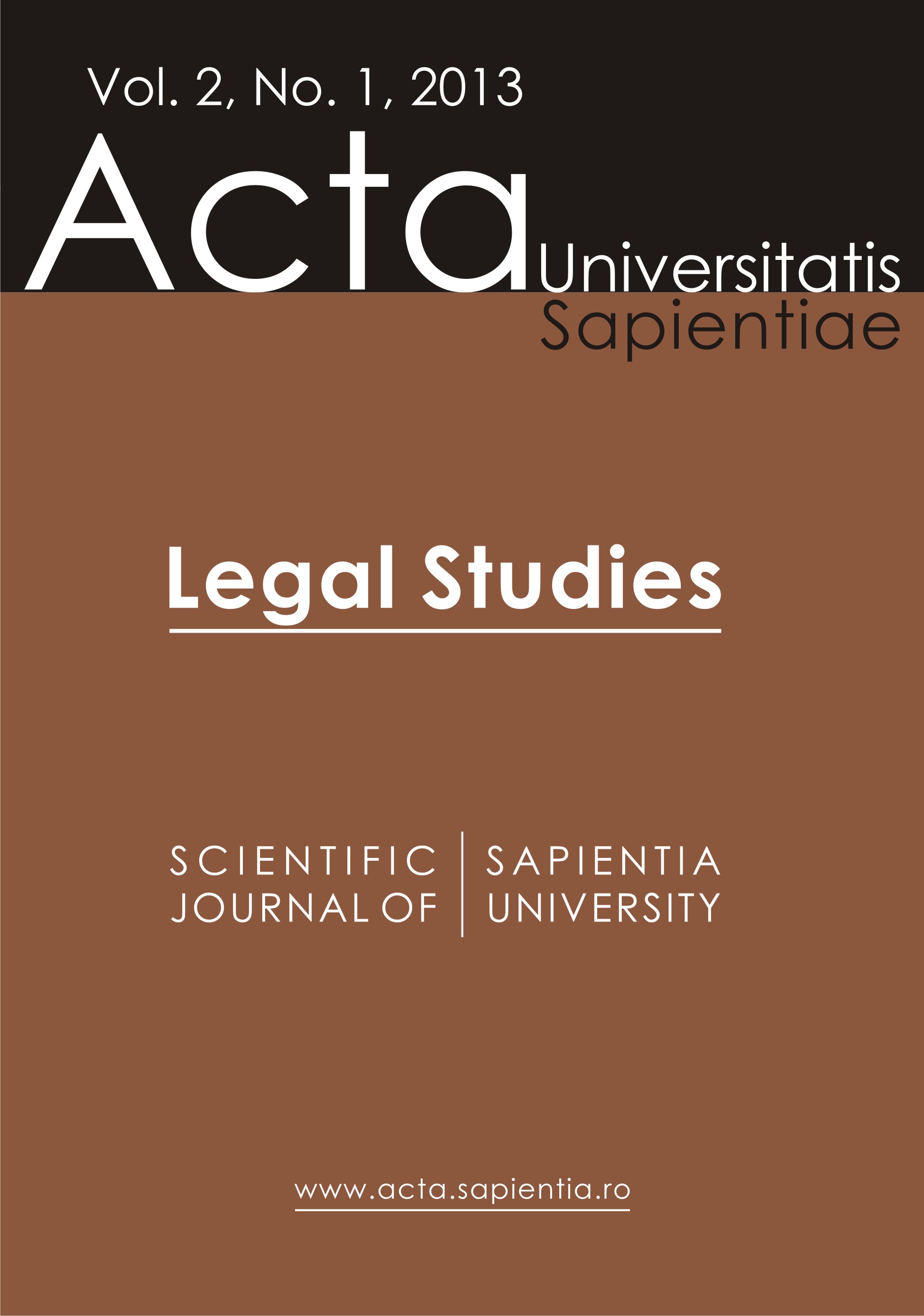Violation of Copyright in the Hungarian
Regulation of the Late 19th and Early 20th Century
Violation of Copyright in the Hungarian
Regulation of the Late 19th and Early 20th Century
Author(s): Tamás NótáriSubject(s): Law, Constitution, Jurisprudence, History of Law, Criminal Law
Published by: Scientia Kiadó
Keywords: copyright; Hungary; late 19th and early 20th century
Summary/Abstract: Hungarian Criminal Code provides sanctions for the most serious cases of violation of copyright by determining the state of facts of infringement (usurpation). In practice it is rarely applied; usually civil law means must be used against occurring violations of rights; therefore, it is an important task of the act to develop methods in the field of civil law consequences that are suitable for repressing unlawful conduct and efficient redress of injuries. The principle of separating moral rights from economic rights followed by the act prevails also in determination of legal consequences; for this reason, it contains special legal consequences in case of infringement of moral rights. The act sanctions infringement of economic rights usually by compensation for damage. Compensation for damage is mostly equal to the fee due to the author in the case of lawful use. This consequence itself does not represent a repressive factor: the unauthorized user’s risk is no more than he pays back the amount that he would have been obliged to pay anyway in case of conclusion of contract according to rules. For this reason, in each case when unauthorised use can be imputed to the user the act prescribes that the court proceedings in the case must impose the amount also as a fine to the debit of the user; which fine can be mitigated by the court solely under circumstances that deserve appreciation. This fine that can be imposed in civil proceedings is a peculiar institution, its introduction rests basically on the deliberation that in terms of legal policy it would be improper if the court awarded fine-type extra service to be discharged by one of the parties for the benefit of the other party. Accordingly, the implementing decree of the act will specify the public benefit goal on which the fine so received must be spent. Consequences of infringement of copyright must be as appropriate applied to cases of infringement of the so-called neighboring rights too. The system of legal consequences corresponds with rules in force in the rest of the fields of intellectual property. The legal institution of fine that can be imposed in case of infringement of rights imputable to the user, however, must be terminated. The institution of copyright fine comes from the period of planned economy; originally it was due to the legal predecessor of the Ministry of National Cultural Heritage and the Central Statistical Office. In the present system of civil law consequences, when in case of infringement of copyright, deprivation of the offender’s enrichment can be requested from the court in addition to compensation for damage, and it is possible to enforce criminal law consequences, in terms of retaliation of infringement of rights it does not seem to be reasonable to maintain the institution of the fine. It is an outdated institution; it can be disputed in principle too, since it punishes infringement of private titles by obligation to make payments for the benefit of the State.
Journal: Acta Universitatis Sapientiae, Legal Studies
- Issue Year: 2/2013
- Issue No: 1
- Page Range: 91-115
- Page Count: 25
- Language: English

